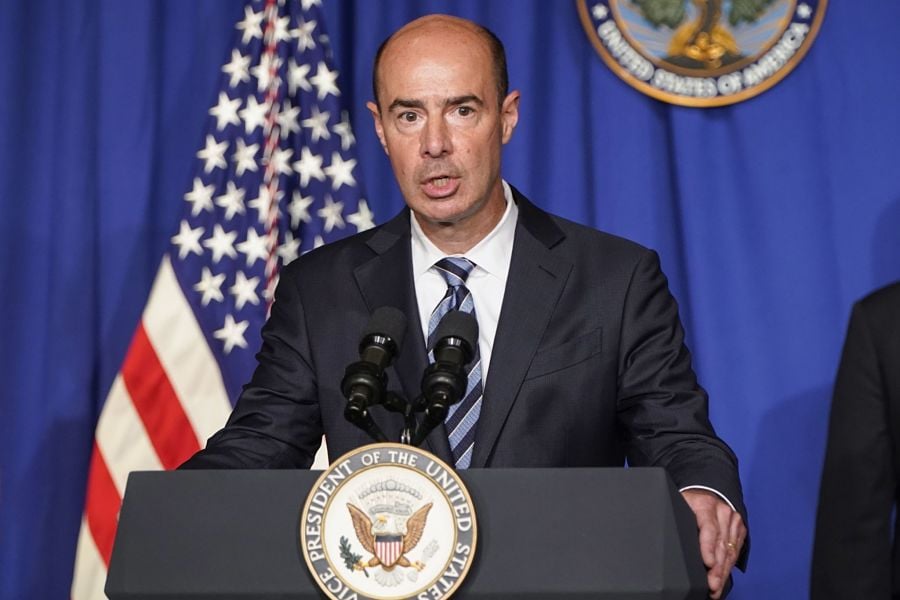

The world’s largest asset managers are speaking out against a Trump administration plan that would make it more difficult for them to incorporate environmental, social and governance factors when making investment decisions, a move that could limit green investing in 401(k) plans.
Fidelity Investments wrote in an 11-page letter to the U.S. Department of Labor that the proposal’s assumption that ESG investment strategies sacrifice returns, increase risks and promote goals unrelated to financial performance isn’t “well grounded or supported by much of the emerging data.” BlackRock Inc. said the recommendation is “overly prescriptive and burdensome.” State Street Global Advisors, Putnam Investments and Legal & General Investment Management are among numerous other firms that also oppose the plan.
The outcry follows the Labor Department’s decision in June to propose the new rule, which would change the Employee Retirement Income Security Act of 1974 (ERISA) to require those overseeing pension and 401(k) plans to always put economic interests ahead of so-called non-pecuniary goals.
The agency specifically focused on ESG investing. The announcement followed a call from the White House to examine retirement plans’ investments in the energy sector. The fossil fuel industry is a major supporter of President Donald Trump, who has repeatedly expressed skepticism about efforts to fight climate change, calling widely accepted science about global warming and its intensifying impact on the planet a “hoax.”
“Pressure from trade associations and the fossil-fuel industry is the most likely reason for what the Labor Department is proposing,” said Bryan McGannon, director of policy and programs at US SIF, a group that supports the sustainable investment business. “It certainly didn’t come from the financial-services industry.”
The Labor Department, led by Secretary Eugene Scalia, probably will decide by the end of the year whether to move ahead with the new regulation, McGannon said. The Nov. 3 presidential election won’t change how the agency “writes the rule as it’s clear what outcome they want,” he said. A Labor department spokeswoman wasn’t immediately available for comment.
In April 2019, Trump issued an executive order directing the Labor Department to look at whether there are “discernible trends” in how retirement plans subject to ERISA invest in the energy sector. Money managers have been reducing their stakes in fossil-fuel companies because of growing concern about the climate crisis.
A Standard & Poor’s index that tracks the performance of oil and gas exploration and production companies has dropped 44% this year, and energy stocks now account for 2.3% of the benchmark S&P 500 Index, down from 16% as recently as 12 years ago.
Managers of ESG funds typically avoid polluters such as fossil-fuel companies, and as a result, they’ve grown in popularity among many investors. An estimated $24.1 billion flowed into ESG-focused funds this year as of July 31, which already surpasses the calendar-year record of $21.4 billion set in 2019, according to Jon Hale, director of ESG research for the Americas at Morningstar Inc.
“This proposed regulation isn’t about something that’s wrong with how ESG is used by fiduciaries,” Hale said. “It’s about promoting investment in energy in ERISA plans and reflects the current administration’s position on fossil fuels and climate.”
The Labor Department gave fund officials and investors 30 days to respond to its proposed ERISA rule change, rather than the more typical 60 to 90 days. In that period, 8,737 comments were made public, and an overwhelming 95% of them opposed the agency’s proposal, according to a review by a group that included Morningstar.
The complaints focused on six main points, including that the proposed rule change is based on a flawed and unsupported assumption that ESG funds give up financial returns in favor of “non-pecuniary” rewards, according to Morningstar.

Chasing productivity is one thing, but when you're cutting corners, missing details, and making mistakes, it's time to take a step back.

It is not clear how many employees will be affected, but none of the private partnership’s 20,000 financial advisors will see their jobs at risk.

The historic summer sitting saw a roughly two-thirds pass rate, with most CFP hopefuls falling in the under-40 age group.

"The greed and deception of this Ponzi scheme has resulted in the same way they have throughout history," said Daniel Brubaker, U.S. Postal Inspection Service inspector in charge.

Elsewhere, an advisor formerly with a Commonwealth affiliate firm is launching her own independent practice with an Osaic OSJ.
Stan Gregor, Chairman & CEO of Summit Financial Holdings, explores how RIAs can meet growing demand for family office-style services among mass affluent clients through tax-first planning, technology, and collaboration—positioning firms for long-term success
Chris Vizzi, Co-Founder & Partner of South Coast Investment Advisors, LLC, shares how 2025 estate tax changes—$13.99M per person—offer more than tax savings. Learn how to pass on purpose, values, and vision to unite generations and give wealth lasting meaning
